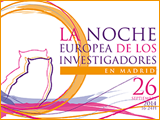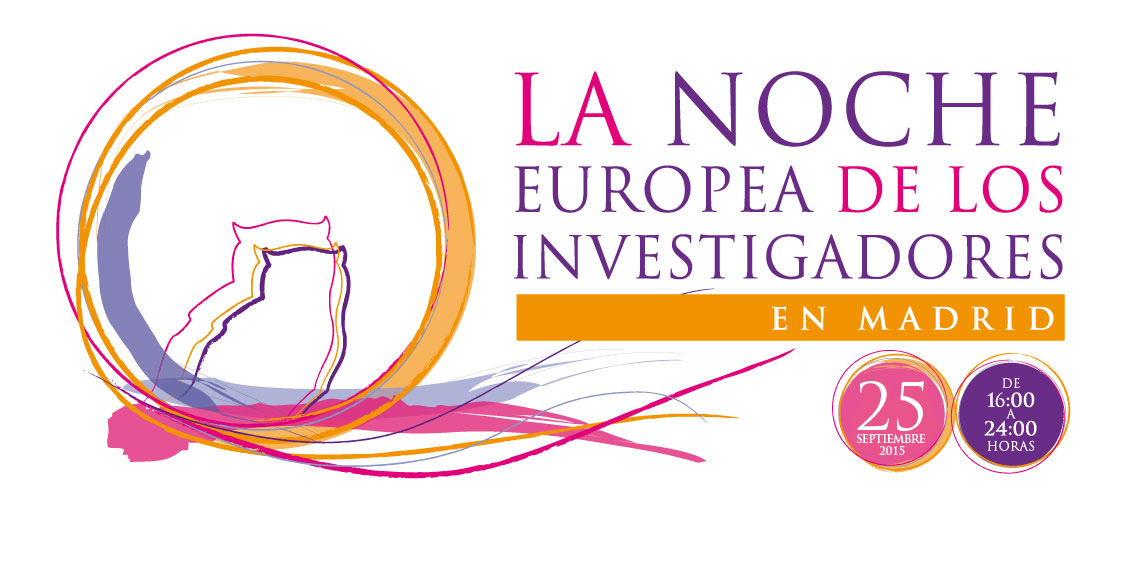IMDEA Networks

Science and movie scientists: Does reality surpass fiction?

Major Event (Highlighted Event)
European Researchers’ Night in Madrid 2015 – Science and movie scientists: Does reality surpass fiction?
Friday September 25th, 2015 – Residencia de Estudiantes
How do science and movies get along? Is it true that, most of the times, truth is stranger than fiction?
Without a doubt, today’s motion picture industry owes much of its success to science. Science has given films many plots, roles, cinematic techniques and tools for the design of film sound and image. Does science owe its success to movies too?
To answer this -and many other questions- researchers from the IMDEA Institutes will meet at the Student Residence (Residencia de Estudiantes) in Madrid on September 25th.
During the European Researchers’ Night in Madrid 2015, we will be able to listen to specialists on subjects as diverse as water, food, energy, materials, Nanoscience, networks and software speak of the film industry and how it interacts with science, researchers and scientific-technical advances which made possible films such as Gravity or Avatar and TV series like A Game of Thrones.
The European Researchers’ Night in Madrid 2015, coordinated by the madrimasd Foundation for Knowledge, is an action framed under the Horizon 2020 European programme, celebrated in over 300 european cities at a time. Twenty scientific institutions in Madrid, including the IMDEA Institutes, will be collaborating this year.
This time around, the location selected by the IMDEA Institutes to carry out their activity is the Student Residence (Residencia de Estudiantes) in Madrid, one of the most emblematic locations in Spanish science, which reminds us of important figures such as Santiago Ramón y Cajal, Ramón Menéndez Pidal, Nicolás Cabrera, Severo Ochoa, Miguel Catalán and Nicolás Sánchez Albornoz.
In Science and movie scientists: Does reality surpass fiction? using the area of science in which they are experts as a starting point, researchers from the IMDEA Institutes will show us the many facets of the film industry and science. To do so, following the layout of a live talk show, they will speak of the image of science and movie scientists, of the sciences that nurture the so-called seventh art,… and, above all, of themselves; of what has driven them to pursue their research, and if their character, drive and work are similar to what is shown in movies.
Hand in hand with these researchers, we will learn both similarities and differences between «real science» and «movie science» and we will hear things as curious as the fact that the film that accumulates more scientific errors is Armageddon: 168, according to the NASA, which uses this film as part of its training asking its technicians and engineers to find them. Or the fact that visual effects and digital cosmetic software helped out in making the actors in Troy and 300 a lot more muscular. And the fact that The Day After Tomorrow‘s plot -New York flooding in a few days because of climate change- is scientifically impossible.
Science and movie scientists: Does reality surpass fiction? will allow us to discover that the invention of filmmaking itself was a great scientific-technical advance and, its further development, an example of growth in various scientific and technological areas such as Nanoscience, energy, materials, software, networks,… and, if we focus on the actors’ physiques, water and food, too.
In the end, the motion picture industry would not be what it is today if it wasn’t for the artistic capacity of directors, actors, screenwriters, cameramen,… and the work of researchers who face the daily challenge of improving, even if only to a limited extent, the lives of others. Thanks to them, sometimes, reality surpasses fiction and, other times, fiction anticipates reality. Amazing, isn’t it?
OPEN ENTRY UNTIL FILLED TO CAPACITY – RESERVATION NOT REQUIRED
Detailed schedule:
18:00 – 20:00 h. Researchers are interviewed by the talk show hosts.
20:00 – 21:00 h. The audience becomes the talk show host.
Suitable for: all audiences.
Date: Friday September 25th, 2015.
Time: 18:00 to 21:00 h.
Place: La Residencia de Estudiantes. Pinar Street, 21-23 – 28006 Madrid.
Organized by: IMDEA Institutes.
Contact information:
Telephone: 911 01 22 02 ext. 4312 / 4005 / 4010.
Email: begona.moreno@imdea.org
Websites: http://www.imdea.org/ and http://www.madrimasd.org/lanochedelosinvestigadores/?lan=en


